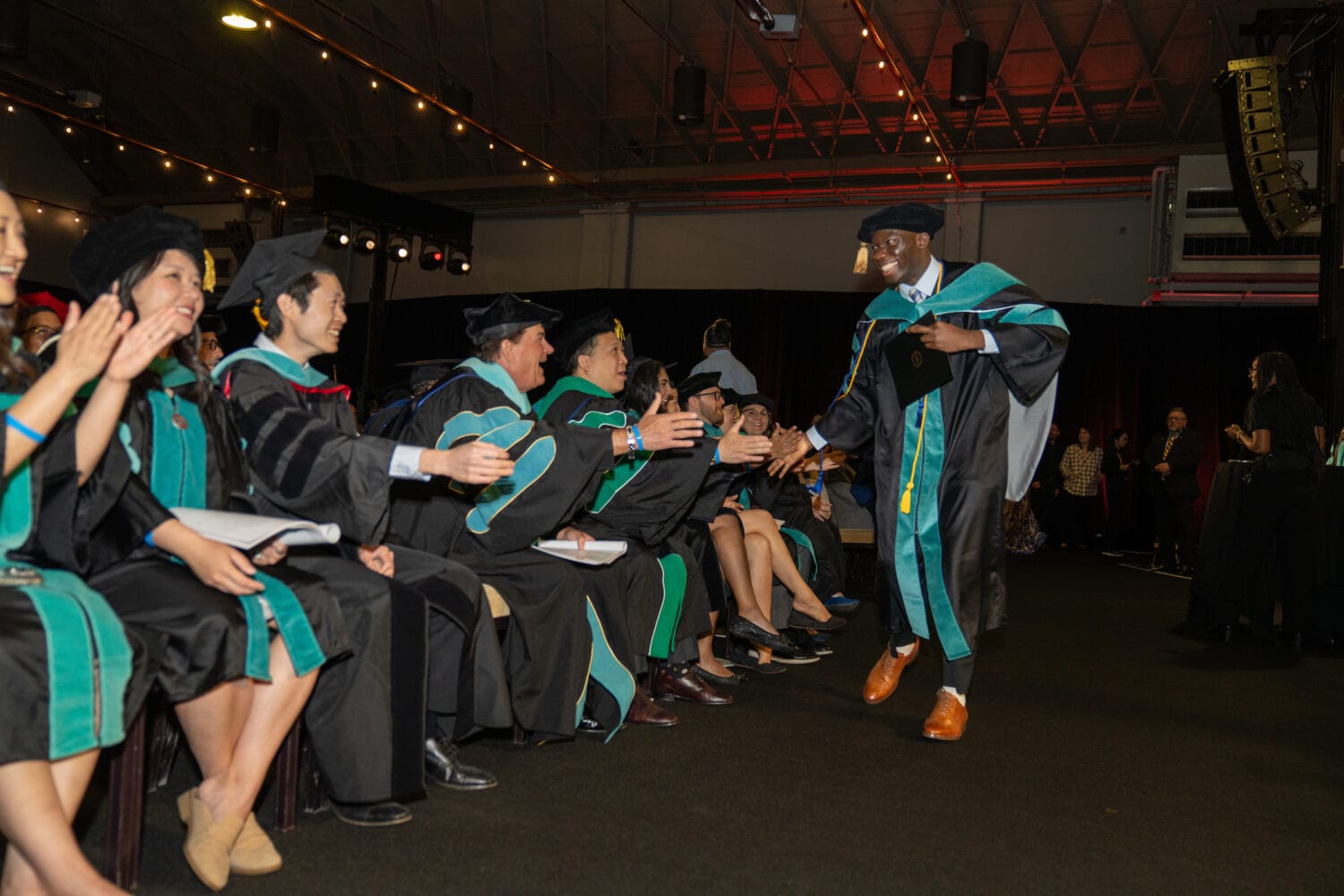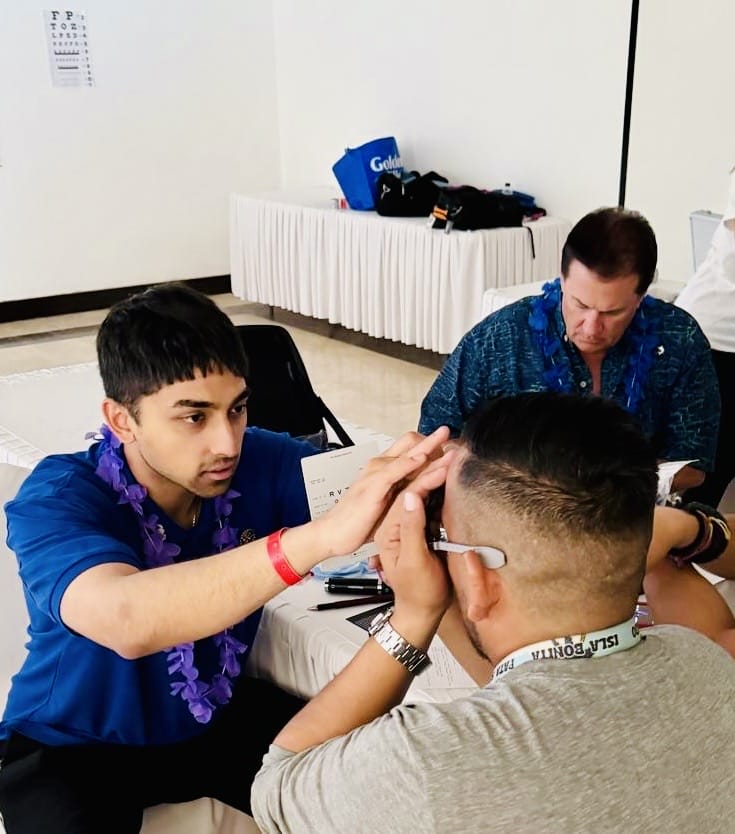Tanzanian visitors shed light on violence against people with albinism
At first she doesn’t want to stand up and take center stage. Her face is covered by a floppy hat and sunglasses, worn out of medical necessity to protect her sensitive skin and eyes. But after some gentle prodding from her adoptive mother, she relents.
Tindi Mbushi, 15, stands up and sings, swaying her body and snapping her fingers in time to the music pouring out of her mouth and from her heart.
“This song has many messages,” Tindi said after she finished singing. “The first message is talking about the killings of people with albinism – the killings of all people and the killings of children. You should not kill. We should cooperate together to stop these things. And we should respect children.”
Tindi and her sister, Bibiana, 17, both have albinism, a group of inherited disorders that results in little or no production of the pigment melanin, which determines the color of the skin, hair and eyes. Melanin also plays a role in the development of optic nerves, so people with albinism have vision problems.
In their country, Tanzania, people with albinism are attacked for their body parts. Witch doctors purport to turn these body parts into powerful potions that will bring wealth and good luck. Bibiana lost her right leg and two fingers to such an attack.
The sisters were adopted by Al-Shaymaa Kwegyir, who is the first Tanzanian Member of Parliament (MP) with albinism.
The family visited Western University of Health Sciences April 30, 2015 to bring greater awareness to the problems facing people with albinism in Tanzania. They are also in Southern California for a new prosthetic leg for Bibiana, which was arranged by the African Millennium Foundation.
They visited WesternU President Philip Pumerantz, PhD, and the low-vision class of College of Optometry Chief of Primary Care Services Bennett McAllister, OD, FAAO.
Rebecca Kammer, OD, PhD, a former administrator in the College of Optometry and current adjunct professor in the College of Osteopathic Medicine of the Pacific, has traveled several times to Tanzania to provide vision care for people with albinism. In 2013, she took three College of Optometry students with her through the nonprofit Under the Same Sun.
Kammer is collaborating with the nonprofit Standing Voice to train Tanzania-based health care providers to give low-vision care to people with albinism. Standing Voice also provides skin cancer prevention and treatment in Tanzania.
“In five to six years, we hope to see everyone with albinism in the country, an estimated 15,000 people,” Kammer said.
In the U.S., roughly one out of every 20,000 people has some form of albinism. In Tanzania, albinism is much more prevalent, with estimates of one in every 2,000 being affected, Kammer said. Life expectancy for people with albinism in Tanzania is in the 30s.
People with albinism face many challenges, Kwegyir said. At least 74 people with albinism have been killed for their body parts in Tanzania. People with albinism also have vision problems and must protect themselves against skin cancer.
“The sun is our enemy. We have to put sunscreen on,” she said. “Due to the vision problem, many people with albinism give up on their education. They can’t see. As a result, many people with albinism are uneducated.”
Tanzania President Jakaya Kikwete appointed Kwegyir to the Parliament in 2008. One of her goals is to travel the country and educate people about albinism.
“I’m talking to people, telling them, ‘Look at me. I’m a Member of Parliament (MP). I have albinism. What’s wrong with me? We people with albinism are human beings like any other people. It’s just a color. We can do anything any other person can do,’” Kwegyir said.
Tindi and Bibiana are perfect examples.
“They are both attending school. They can speak English. They can sing. They can do anything like any other person,” she said.
Tindi sang for both the optometry students and Dr. Pumerantz, who responded by saying the girl has the wisdom of the ages. He also praised Kwegyir’s work.
“You are courageous to take this issue on,” he said. “I’m glad you came here. You’re introducing something that’s new to me, and I’m very touched by it.”
Artist Yrneh Gabon Brown accompanied the MP and her family on their trip. He is bringing greater awareness of the plight of people with albinism in Tanzania through his art. His work that examined albinism in Tanzania, Jamaica and the U.S., “Visibly Invisible,” was featured at the California African American Museum.
“Each one who leaves this room today, tell one, and keep it going,” Brown said to WesternU students. “Then we will have a global community that says we are not going to stand for inhumanity against humans. Don’t leave it in the room today. Take it with you and pass it on, so there’s an awareness.”
Links: Video of Tindi singing in Dr. Pumerantz’s office https://www.facebook.com/yrnehgabon/videos/10205859605902481/
United Nations albinism awareness campaign http://albinism.ohchr.org/
Visibly Invisible: https://www.youtube.com/watch?v=_2Ny4MJAl2I&feature=youtu.be



